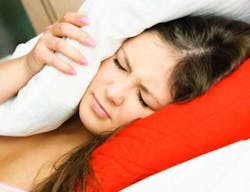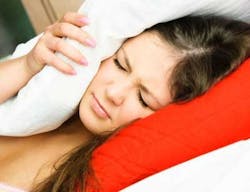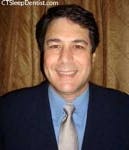Dentists play an important role in treatment of patients' sleep disorders
By David P. Schwaber, DDS, ABDSM © Dreamstime.com
As a dentist who has worked with physicians for more than 12 years in the treatment of people who snore and suffer from sleep apnea, I recognize that the dentist’s role in helping those patients has become increasingly important. The medical problems associated with sleep disordered breathing have been well studied and documented. Hypertension, cardiovascular problems, and impaired cognitive functioning are but a few of the possible health consequences. Untreated patients with sleep apnea can put themselves at risk for increased morbidity and mortality. Public awareness has improved, but unfortunately many people still go undiagnosed. Oral appliances, which are worn in the mouth like dental retainers, have proven to be a comfortable and effective choice for patients who have the symptoms of sleep apnea, such as tiredness, snoring, and poor sleep. Many patients who are unwilling or unable to use CPAP machines have benefitted from using oral appliances, which have been recommended by the American Academy of Sleep Medicine in the treatment of OSA, obstructive sleep apnea. First, patients who have already been diagnosed by their physicians with a sleep study called a polysomnogram are referred to the dentist for evaluation. Our examination includes a sleep history and a complete exam of the upper airway and dentition. A discussion regarding the different types of oral appliances follows with an explanation of how they are designed to work. Patients who wear oral appliances often report improved comfort because they are able to sleep in any position without using the cumbersome facial masks and hoses associated with CPAP. As the appliances are titrated and adjusted over a period of weeks, the dentist will often provide the patient with an overnight at-home sleep monitor that can be returned to the office the next day. The results are downloaded into a computer program that provides feedback on apnea, hypoxia, and blood oxygen levels. With this information, further adjustment of the appliance can be made if needed. A follow-up study by the patients’ sleep center is always recommended.
Dr. David Schwaber is a graduate of the University of Tennessee College of Dentistry. He has studied orthodontics at the Institute for Graduate Dentists and has a diplomate accreditation by the American Academy of Dental Sleep Medicine. As a consultant to the Hospital of Central Connecticut and other Greater Hartford sleep centers, he has presented numerous lectures to physicians and patient groups in the field of dental sleep medicine. His informational Web site on dental sleep medicine is www.ctsleepdentist.com.Special thanks to Irfan Ali who made everything possible in regard to getting this article published with DentistryIQ. He was a true asset to my practice in the area of dental sleep medicine and other aspects of dentistry. If you would like to connect with Irfan in the business arena of dentistry, please contact him at [email protected].


